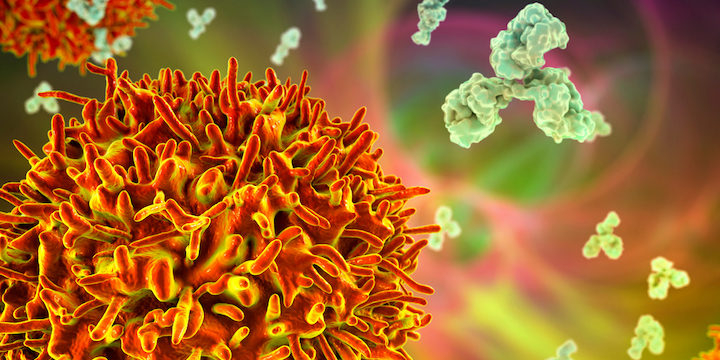How long is an organism infected with the coronavirus able to recognize it? The question has been questioning scientists since the start of the pandemic. While antibodies, these defense molecules capable of specifically recognizing a virus, seem to disappear over time, they are not the immune system’s only weapon.
A new study published on February 23 by American researchers in the journal Science Immunology is interested in the efficiency of certain white blood cells: B lymphocytes.
Very long lifetime
Why study these cells? Because B lymphocytes play a central role in infections. When they encounter an antigen, such as the SARS-CoV-2 coronavirus for example, part of the B lymphocytes makes antibodies specific to the virus. The other part differentiates into memory B lymphocytes which are also specific for the virus.
And these memory cells have several advantages: they generally have a very long lifespan and are highly specific to the virus encountered.
If, after a first infection, the body is confronted with the virus again, the memory lymphocytes and the antibodies – if they are still present – will both recognize it and destroy it quickly to avoid reinfection.
Stable B cells after five months
And this is what seems to be happening in the case of the coronavirus. The researchers analyzed the blood of eight patients with severe and moderate covid-19. They looked both for B lymphocytes and for the presence of 1213 antibodies.
First observation: the level of neutralizing antibodies decreases over time, which confirms the previous studies published on the subject.
Second observation, and this is good news: B lymphocytes specific to protein S – the surface protein of SARS-CoV-2 – remain stable for a period of at least five months after infection.
No recognition of variants
But doubts persist about the variants of the coronavirus, whose mutations modify the S protein. According to this study, immune cells do not effectively recognize variants that have a particular mutation called E484K, such as the Brazilian and South African variants.
This means that an organism infected with the old variant could not avoid reinfection with one of these variants. These results must be confirmed in a larger study to be carried out on a larger number of patients. But the few cases of reinfection with the South African variant already recorded in the world have proven that such a scenario is possible.
In response to this risk, the study authors suggest carefully monitoring changes in S protein for different variants of the coronavirus. The objective: to determine the impact of these mutations on the immunity induced by the vaccine and to produce effective vaccines against all these virus strains.
 Cherry tomatoes contaminated with salmonella: 92 sick and 1 dead
Cherry tomatoes contaminated with salmonella: 92 sick and 1 dead  A better coaching method can make a person grow
A better coaching method can make a person grow  What is the method to prevent diabetes in children?
What is the method to prevent diabetes in children?  What are the effective factors in causing stomach ulcers?
What are the effective factors in causing stomach ulcers?  Why do embarrassing memories seem to appear at night?
Why do embarrassing memories seem to appear at night?  The amazing link between SARS-CoV-2 infection and newly started diabetes
The amazing link between SARS-CoV-2 infection and newly started diabetes  WHO says monkey pox is not a global emergency right now
WHO says monkey pox is not a global emergency right now  Single cell RNA sequencing uncovers new mechanisms of heart disease
Single cell RNA sequencing uncovers new mechanisms of heart disease  Hepatitis of unknown origin: 3 new deaths and 228 cases worldwide
Hepatitis of unknown origin: 3 new deaths and 228 cases worldwide 